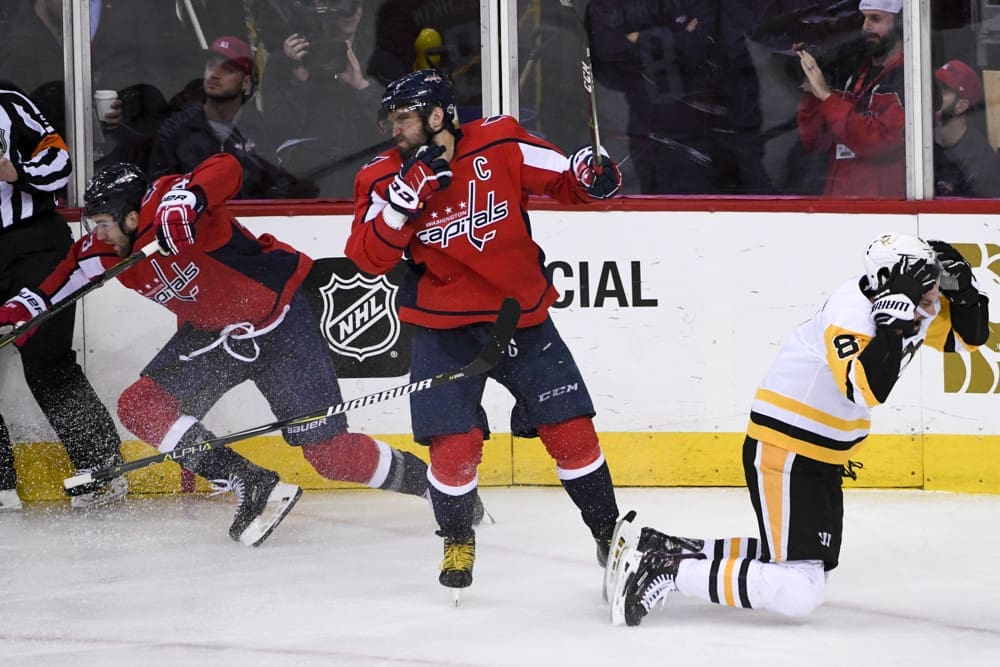NHL
Gajtka: Only Courts Can Save Deflect-and-Deny NHL From Itself
If you love hockey, you should root for the National Hockey League to take it on the chin.

If you love hockey, you should root for the National Hockey League to take it on the chin.
Based on U.S. District Court depositions reported on by TSN’s Rick Westhead, The Athletic’s Katie Strang and others in recent weeks, if you love hockey, root for the league to lose. From former Devils GM Lou Lamoriello admitting his team outright skipped baseline concussion testing during one preseason to longtime Bruins owner Jeremy Jacobs denying that he’s ever heard of CTE (chronic traumatic encephalopathy), the NHL has the look of a league covering its eyes and pretending to be blind.
While pragmatic, the NHL’s legal strategy is abhorrent from a human perspective. In order to prevent a consortium of former players from filing a class-action lawsuit, the NHL representatives being interviewed are denying and deflecting.
Their hope is that, by establishing enough gray area, they can avoid the fate of their National Football League brethren, who settled with a group of suffering players for around $1 billion last year. It was a similar case in that the NFL players of yesteryear claimed (successfully) that their league and its teams knew enough about the detrimental effects to the brain that football can cause.
That’s why we see Gary Bettman clinging to the thought that “(t)here’s no medical or scientific certainty that concussions lead to CTE” when grilled under oath three years ago.
(Video courtesy of The Athletic)
Bettman is technically correct that there’s no 100 percent certainty that concussions and the kind of general head trauma endemic to full-contact sports like hockey cause CTE. But medical professionals are increasingly compiling evidence that there is likely a cause-and-effect relationship.
Not only does that theory align with common sense, it’s a moral imperative to give weight to the good possibility that it’s accurate. And as I argued in last Friday’s 200-Foot Podcast here on PHN, for all the hours of enjoyment NHL players have given us over the years, we owe it to them to look out for their well-being.
The NHL likely realizes it’s in big trouble here. Considering the precedent set by the bitterly-disputed NFL case, it appears more likely than not that the former hockey players will be able to reach that class-action threshold and thus be able to team up against the league.
As such, NHL leadership figures are probably being instructed to play dumb, even if they were more enlightened of the latest research than they are letting on during the ongoing legal proceedings.
Nick Boynton and Daniel Carcillo have been among the most vocal of former players illuminating their struggles with mental health following careers of literal self-sacrifice on the rinks of organized hockey. These impassioned anecdotes via the Players’ Tribune are important in keeping this topic at front of mind in the hockey-following world.
All due respect to these men — and there’s plenty of it coming from my angle, believe me — but emotion and empathy aren’t what wins in the court of law. What wins is cold, hard evidence.
The question will be this: Are there enough facts to convince Judge Susan Richard Nelson in Minneapolis to grant the class-action request? Was the NHL reckless and negligent in failing to warn players of the potential long-term effects of head trauma?
We’re not privy to all of these on-the-record conversations. However, it strains credulity to believe that the league and its representatives acted in good faith. Whether they were actively malicious is in the eye of the beholder, but intent doesn’t matter. What actually happened does. And what actually happened was very little.
If you care about the people who make the NHL go, a.k.a., the players, then you should be pulling for the league to take a massive financial hit in this possible lawsuit. In my view, that’s the only motivation this group will actually respond to.
You may say how the NHL is conducting itself through this ordeal is just good business. I won’t disagree, but I’d also argue the best way to protect the business into the future is to ensure its upstanding stature in the eyes of the customer. Bettman and Co. should realize they’re losing the PR battle here, big time. That’ll hurt the bottom line in the end.
Now, we can debate which changes need to be made to the pro game to best protect current and future players. I’m not sure I have all the answers, outside of a zero-tolerance policy on head contact. Perhaps the NHLPA, which is not faultless in this situation, could offer its suggestions.
To put it in legal terms, though, there’s a preponderance of evidence that the league has been in the wrong and continues to be so. We don’t need ‘beyond the shadow of a doubt’ here. This is not a criminal trial.
How about giving the players the benefit of the doubt? The time for that is well past.


